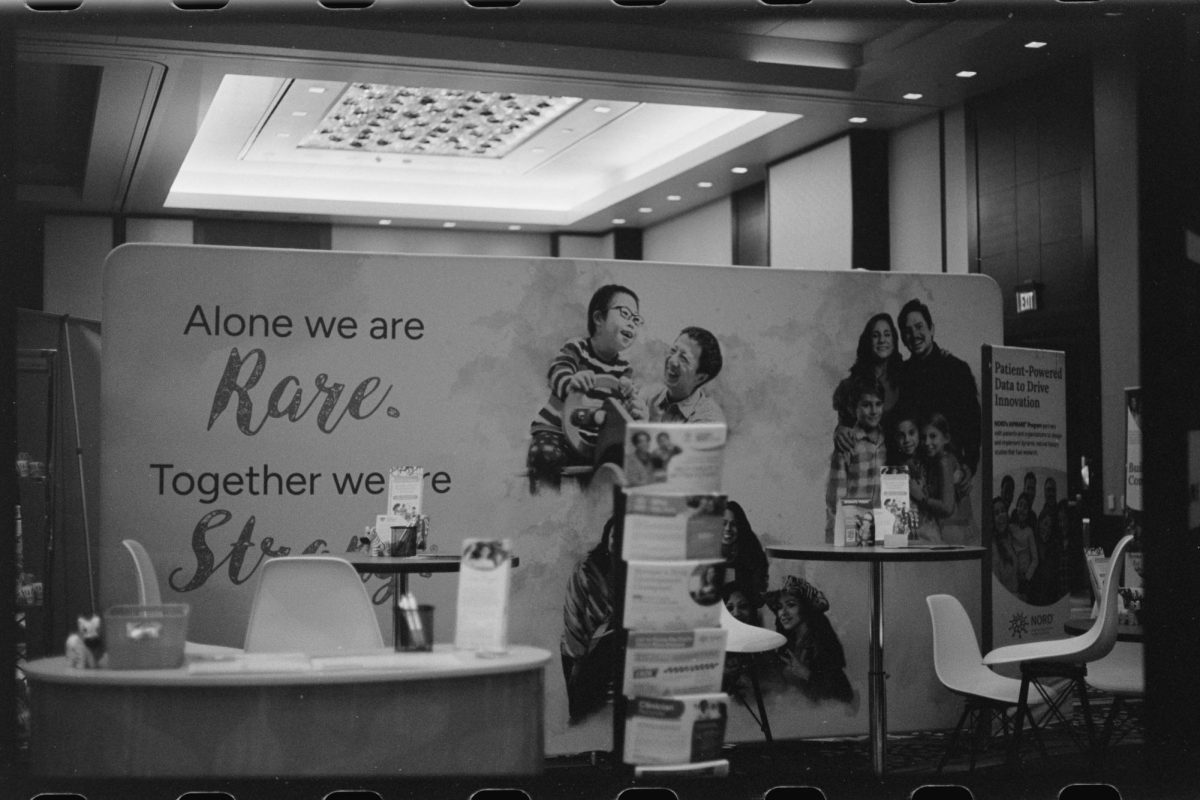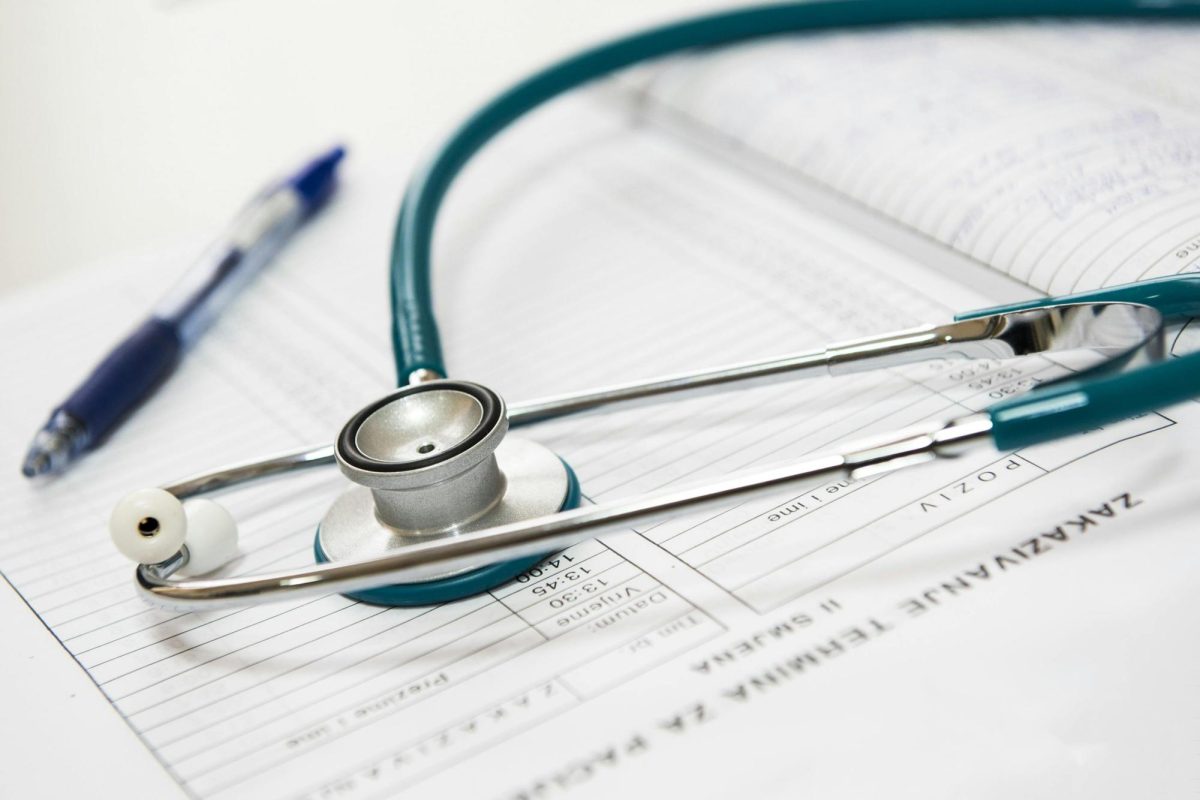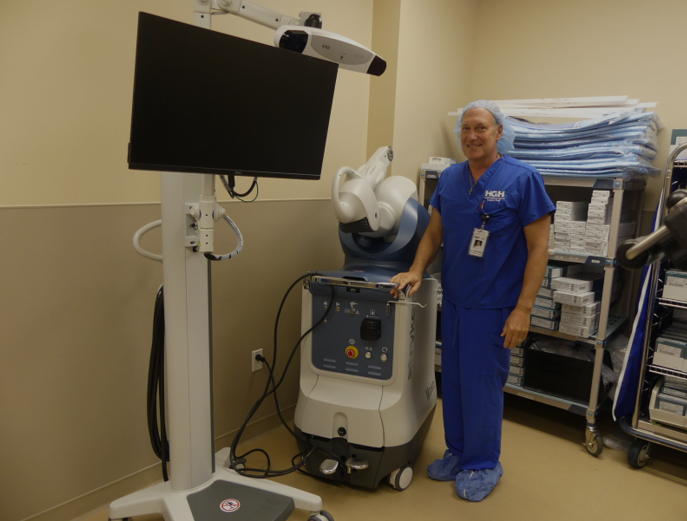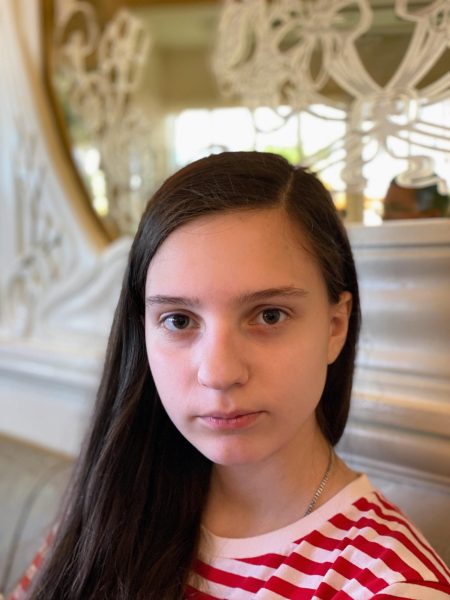Editor’s Note: The following article is an opinion piece that reflects the views of the author.
This October, I was honored to receive a student scholarship to attend the 2024 NORD Breakthrough Summit. The National Organization for Rare Disorders (NORD) aims to benefit the rare disease community through patient advocacy, working with pharmaceutical companies to develop treatments and drugs and pushing policies vital for rare disease patients and their overall care.
After attending the conference, I can confidently say that NORD is actively and successfully fulfilling its mission, trailblazing the path for the rare disease community since 1983, possibly now more than ever. Spending three days at the conference opened my mind to this world and community, which I would have most likely not been fully aware of otherwise. Since attending, I have felt strongly compelled to write this article, hopefully giving the GWUOHS student body and faculty a small window into the importance of NORD’s work.
As a student, I attended the Students for Rare meeting the day before the conference was officially set to begin. Students for Rare is a branch of NORD that works with colleges and high schools to help spread awareness about rare diseases within student bodies, along with providing resources to assist students in pursuing careers and research surrounding rare diseases. I was one of a handful of students from a high school, as the majority of those attending were graduate students.
Despite the gap in our education experience, I found that the presentations and insights given by these students were extremely valuable. Many of the attending students were currently conducting medical research on a variety of rare diseases, and their presentations discussing their research and findings highlighted the importance students have on not only advocating and spreading awareness about rare diseases but also conducting vital research on them.
Advocacy group members and NORD employees also presented during the meeting, specifically discussing the role students have in advocacy, providing tips and resources to grow their Students for Rare chapters, and showcasing how advocacy ultimately leads to policymaking in favor of the rare disease community. A particular presentation focused on the establishment of Rare Disease Advisory Councils, or RDACs. RDACs are established as advisory councils within state governments, lending a powerful voice to the rare disease community and helping to pass legislation that improves the care of patients.
For me, this was a powerful reminder that all voices, no matter how small they may seem, are crucial to spreading awareness for any issue. 20 million to 30 million Americans are currently living with a rare disease, so these individuals need to have a voice, especially in areas where their care and welfare are concerned. Seeing the care each member of Students for Rare puts into their work and advocacy pushed me to contemplate how I can become more involved in supporting the rare disease community, and I believe this article is a first step of sorts to work on that goal. This first meeting provided a powerful eye-opening experience, setting a strong precedent for the rest of the conference.
The following morning, the summit officially started, beginning with several keynotes from NORD leadership, rare disease patients and those working in the rare disease industry. Hearing the stories of patients and advocacy leaders, along with the innovation happening within the medical industry, I found how dedicated all of those involved truly are, as well as how they all play different roles. They all lend to pushing forward in fighting against rare diseases and helping those affected by them.
According to NORD, out of the over 7,000 rare diseases currently known, over 90% of them do not have any FDA-approved treatments or drugs. Along with this, rare diseases are often misdiagnosed by doctors. A patient speaker with Huntington’s Disease described her experience, explaining how she was repeatedly misdiagnosed and spent months on end going to several doctors to finally reach a correct diagnosis. Unfortunately, this is a reality for many patients with rare diseases, in part due to the lack of education and proper knowledge of rare diseases within the medical community and among doctors.
Despite this, NORD and the companies and groups that were present and spoke during the conference provided a great deal of hope to patients, as their work in pushing for stronger advocacy and taking steps towards creating FDA-approved treatments is forwarding rapidly. The primary theme of the 2024 Summit was establishing equitable access and innovation for rare diseases, and it is clear that NORD and its partners are striving for better access and greater innovation through their work and advocacy.
The second day of the conference consisted of more keynotes and panels with industry leaders and advocacy groups. In addition to listening to these, I had the privilege of directly speaking to those who were involved in these areas.
Specifically, I spoke to several members of the team at Rare Disease Advisor, a branch of the Haymarket Medical Network that focuses on providing news and insights for doctors and researchers surrounding rare diseases. While speaking to the team, it was apparent that they were all dedicated to their work in furthering awareness and education within the medical community regarding rare diseases, and their content reflects this clearly.
I also had the pleasure of speaking to Jennifer Shaw Alred, the Patient Education and Support Coordinator at the HyperIgM Foundation. Although our conversation was relatively brief, she gave me incredible insight into what proper education, advocacy and accessibility should be. Her perspective as a rare disease patient herself provided a different outlook on the subject.
Alred highlighted the importance of correct advocacy, as it can sometimes lead to incorrect information and education, which ultimately has the opposite effect of its original purpose. Especially for those who do not have any direct ties to the rare disease community, it can be difficult to accurately and correctly advocate for it, as a great deal of research and education is needed. However, I am confident that with proper resources for education and knowledge, such as the ones provided by NORD and other advocacy groups, anyone is capable of lending a much-needed voice toward the advancement of rare disease advocacy.
As I reflect on this incredible opportunity to attend the 2024 NORD Breakthrough Summit, I felt truly honored to represent GWUOHS and its student body. Now that I have seen what the rare disease community truly looks like, I feel that action is needed within our school to contribute to this cause. Discussing my experiences is just the first step, as this article serves as an open letter to the entire GWUOHS student body and faculty. Some members of our school community may know someone close to them with a rare disease or suffer from one themselves. GWUOHS should collectively stand behind these individuals, raising our voices to advocate for them.
Judging by the incredible impact Students for Rare chapters have on college and high school campuses, I believe that a powerful way to help better advocate within GWUOHS is by establishing our own chapter. All voices are important. While it may seem as if our contributions would be insignificant, educating our school community and beyond about rare diseases and advocating for patients is beyond valuable. If we can actively contribute to advocating for equitable access and innovation for the rare disease community, we are supporting a powerful and meaningful mission. I hope that this article at least somewhat showcased the importance of NORD’s work and that we as a community can work on supporting this community in any way we can.





